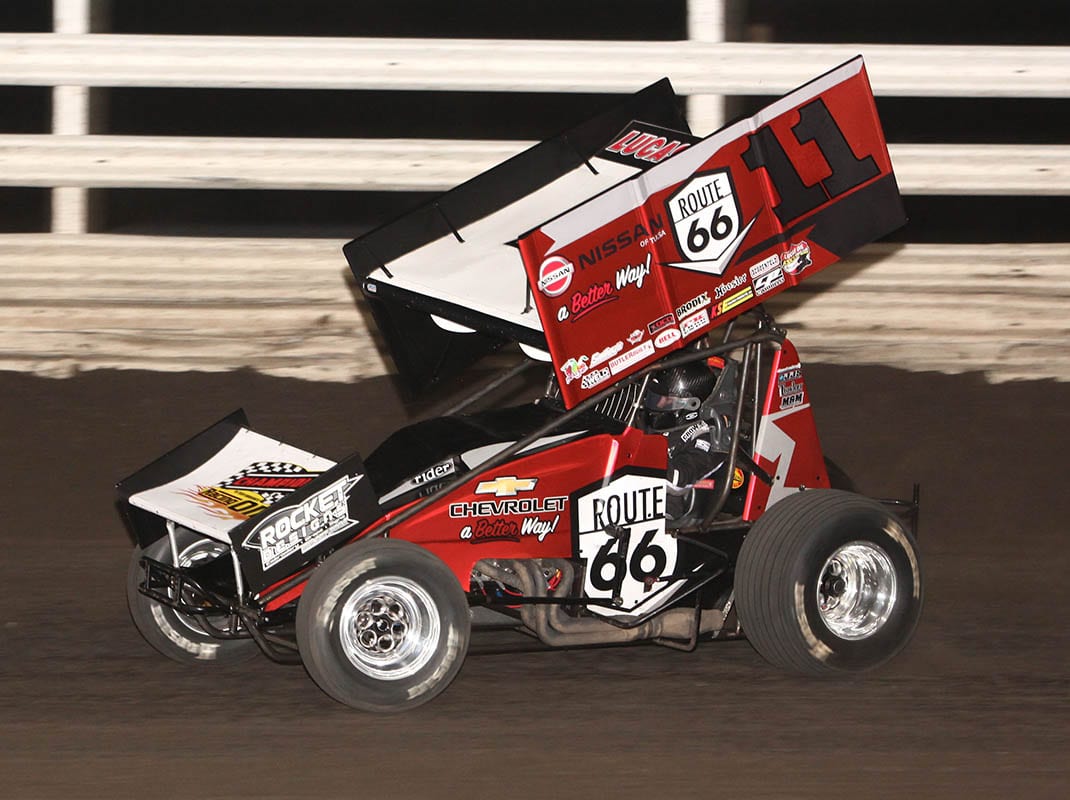A kidney transplant was on the agenda from the day Roger Crockett was born.
Much like a driver navigates traffic as the laps wind down, Crockett pushed through the obstacles in his life without hesitation before the time for a kidney transplant arrived.
“Basically, I was born with a blockage from my kidneys to my bladder,” the 38-year-old said. “It wasn’t caught when I was born. When that happens, it creates damage in your kidneys. One was a little more damaged than the other. I kind of knew growing up at some point I’d need to do something.
“When I was younger, I didn’t think about it a whole lot,” Crocker continued. “I wasn’t allowed to play heavy contact sports. I wanted to race pretty much anyway. For the most part it wasn’t a big concern growing up. I was told don’t hit your back on something, be careful of your kidneys. I had a couple of tests that were not fun. I have pretty vague memories of it.”
While Crockett was kept off the football field, he was able to live out a reality many other children only dream about tackling. Crockett — the son of veteran sprint car driver and current series promoter Brian Crockett, who won 10 championships and 179 main events from 1981 to 1994 before pulling back once Roger began racing — first hot lapped a winged sprint car when he was 12 years old. The next year he made his sprint car racing debut during an ASCS race in Beebe, Ark.
“We went back (to the Midwest) and were going to run two weekends with four races,” Crockett said. “The first weekend rained out. We go all the way back there with our ’82 Suburban and 24-foot trailer. We’re walking the track (at the first race) and my dad is like, ‘Whatever you do, don’t go off turns three and four. No matter what don’t go off turns three and four.’
“There was a big drop off there. My first hot-lap session I got on the gas off turn two and drove right off the track in turn three,” Crockett recalled. “My dad says he looked at the flag man who was about to throw the red flag. Then he put it away and threw the yellow flag. Here I come crawling back on the track. I got back on the track and they waved the green flag again. I went hauling into turn one and straight off the track again. I hit the tires on the outside of the track.
“All I did was bend a radius rod. I came in and my dad was all freaked out about how we’re going to have to go home because we didn’t have any spare parts. That shows you the budget we had to go out there.”

While Crockett’s sprint car career began a little rough, he quickly became one of the top competitors on the West Coast. Crockett noted he has 12 championships between series and tracks and 224 feature victories.
The first title came at Eugene (Ore.) Speedway in 1995. Crockett has also claimed track championships at Cottage Grove Speedway in Cottage Grove, Ore., as well as series titles with the Civil War Sprint Car Series, the Northern Sprint Tour, the Northwest Sprint Challenge Series and the ASCS Northwest Region.
As Crockett exited his teen years and he was developing into the driver to beat in the Northwest, his kidney function started to become a problem.
“As I got older when I lived in Oregon, I was extremely hungry all the time,” he said. “I ended up going to the doctor because I couldn’t get full. They ran some tests and saw my kidney function was way off what it should be for my age. That jump-started it back in my life realizing something would need to be done sooner than later. I was around 20 years old or 21 years old when that became more realistic.
“I went and saw a naturopathic doctor basically to prolong needing a transplant. They told me I’d probably need one by the time I was 23 years old,” Crockett added. “I ended up not needing to until I was 28 years old so that natural stuff worked. My kidney function was down to 13 percent.”
An unsuccessful surgery in the spring of 2008 pushed the medical problem to the forefront.
“When that didn’t work, they put the plan into motion a lot quicker,” he said. “My mom, dad and sister were the options at that time of my life. We did tests in August of that year. My dad and my sister were the best match. My sister didn’t have kids, so they suggested my dad was the best option for a lot of reasons.
“Nothing was ever like you could die, but at the same time if you don’t get a kidney transplant, you’re not going to live,” Crockett continued. “What’s amazing is how many people reached out and said if I ever need a kidney (they’d help). That’s just crazy. I don’t think that would have happened without the racing community and being a part of this sport. It’s an overwhelming feeling.”
